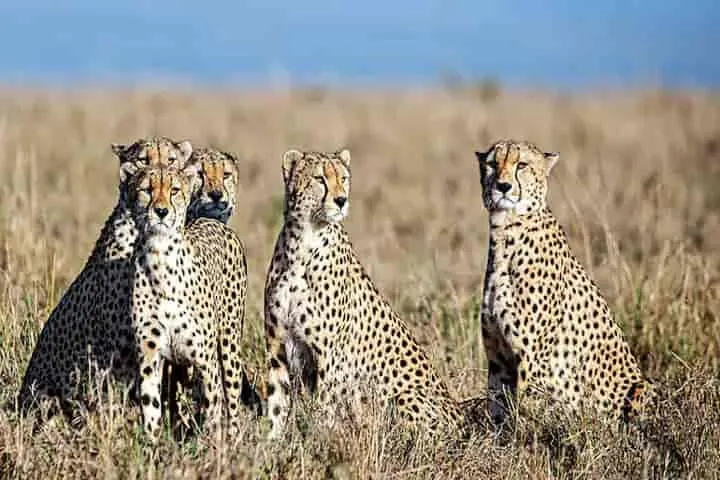Finally, the cheetahs, the fastest land animal which can run up to a speed of 113 km per hour, will be seen in India. Set to return to the forests after more than 70 years, eight of these wild cats from the southern African country, Namibia will be seen roaming freely at Madhya Pradesh’s Kuno Palpur National Park.
The felines are expected to be here by August, officials informed. Kuno Palpur National Park with an area of 344 square kilometres, is located in Madhya Pradesh’s Sheopur and is 125 kilometres from Gwalior airport.
Cheetah, being an important part of India’s ecosystem became extinct in 1952 due to poaching and loss of habitat. The last three cheetahs were shot dead by Koriya’s Maharaja Ramanuj Pratap Singh Deo.
Namibia has the largest population of cheetahs in the world. Globally there are about 7,000 of these cats remaining and they have been listed as a vulnerable species under the red list of threatened species prepared by the International Union for Conservation of Nature.
Government officials in India have been working on relocation of cheetahs from 2020 onwards. Interestingly, the bringing back of cheetahs coincides with Azadi Ka Amrit Mahotsav – the celebration of 75 years of the country’s Independence Day.

Taking to Twitter, Bhupender Yadav, Union Cabinet Minister for Environment, Forest and Climate Change wrote: “Completing 75 glorious years of Independence with restoring the fastest terrestrial flagship species, the cheetah, in India, will rekindle the ecological dynamics of the landscape.” He went on to add: “Cheetah reintroduction in India has a larger goal of re-establishing ecological function in Indian grasslands that was lost due to extinction of Asiatic cheetah. This is in conformity with IUCN guidelines on conservation translocations.”
Also read: Namibia sending 40 cheetahs for India’s national parks




















